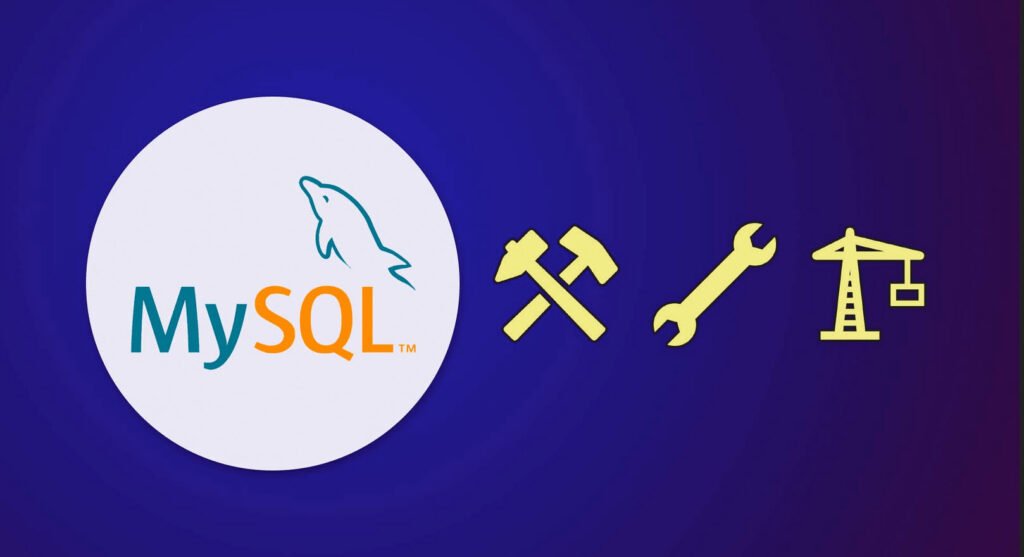MySQL, a robust and open-source Relational Database Management System (RDBMS), stands as a cornerstone in the realm of database management. Developed by Oracle Corporation, MySQL is renowned for its speed, reliability, and simplicity, making it a preferred choice for a diverse range of applications.
Let’s explore into the key aspects of MySQL, exploring its features, benefits, and common usage scenarios.
Key Features of MySQL
1. Scalability and Compatibility
MySQL exhibits exceptional scalability, making it an ideal choice for web servers that need to grow with expanding websites. It seamlessly operates on various operating systems, offering flexibility to developers and administrators.
2. Performance Focus
Performance is a top priority for MySQL. It provides efficient indexing and full-text document searching, enhancing query execution speed. Features like query caching further contribute to superior performance.
3. SQL at the Enterprise Level
MySQL has evolved to include advanced SQL functionalities such as subqueries, views, and stored procedures. This positions it as a powerful solution capable of meeting the demands of enterprise-level applications.
4. Indexing and Searching of Full-Text Documents
MySQL supports full-text indexing and searching, enabling users to perform sophisticated searches on textual data efficiently.
5. Replication
MySQL allows for database replication, where a MySQL server can be duplicated onto another server. This feature enhances data availability, reliability, and load balancing.
6. Security and Configuration
MySQL offers robust security features, allowing administrators to configure user access and permissions effectively. Security is a critical aspect, and MySQL provides mechanisms to safeguard sensitive data.
Basic MySQL Interview Questions
1. What is MySQL?
MySQL is a scalable RDBMS that serves as a web server database management system. Developed by Oracle Corporation, it is open-source and widely used for its reliability and performance.
2. Benefits of MySQL
- Flexibility: MySQL operates on various operating systems.
- Performance: It focuses on delivering high performance.
- SQL at the Enterprise Level: MySQL now supports advanced SQL functionalities.
- Indexing and Searching: Efficient indexing and full-text document searching.
- Replication: Database replication is supported.
- Security and Configuration: Robust security features and flexible configuration.
3. What are Databases?
Databases are structured collections of data stored in a computer system, organized to facilitate quick and efficient retrieval of information.
4. What does SQL stand for in MySQL?
SQL stands for Structured Query Language in MySQL. It is used to submit queries to a database for data retrieval.
5. What is a MySQL Database made of?
A MySQL database comprises one or more tables, each consisting of rows and columns that hold related information.
6. Ways to Interact with MySQL
MySQL can be interacted with through a web interface, command line, or programming language.
7. What is a BLOB in MySQL?
BLOB stands for a Binary Large Object, and it is used to store a variable amount of data. MySQL supports different types of BLOBs based on size.
8. How to Add Users to MySQL?
Users are added to MySQL by executing the `CREATE USER` command with the required credentials.
9. What are MySQL Views?
Views in MySQL are virtual tables generated by a query. They provide a convenient way to make a query available through an alias.
10. MySQL Triggers
Triggers in MySQL are actions that run in response to specific predefined events, such as adding a new record to a table. They serve purposes like validation, audit trails, and enforcing referential integrity.
11. Types of MySQL Relationships
MySQL supports one-to-one, one-to-many (or many-to-one), and many-to-many relationships between tables.
12. MySQL Scaling and Sharding
Scaling in MySQL refers to the system’s ability to handle demand, considering factors like data quantity, user size, and related datasets. Sharding involves dividing large tables into smaller shards distributed across different servers to enhance performance.
Conclusion
MySQL’s prominence as a reliable and efficient RDBMS is evident from its widespread use across diverse applications. Its flexibility, performance focus, advanced SQL support, and security features make it a preferred choice for developers and administrators alike.
As technology evolves, MySQL continues to play a pivotal role in empowering modern database management. Whether used in web development, enterprise-level applications, or data-intensive projects, MySQL remains a stalwart in the ever-evolving landscape of database systems.



